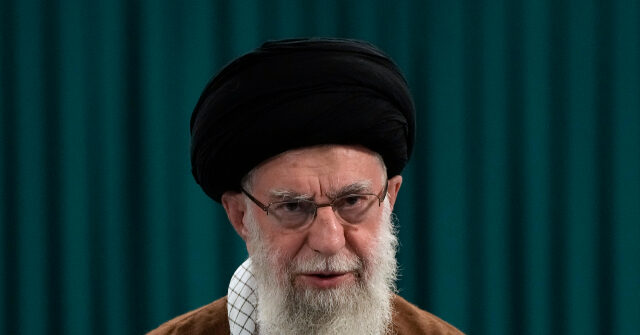On a recent Friday, the U.S. Department of Justice unsealed a significant indictment involving a man described as an “Iranian asset” named Farhad Shakeri, along with two accomplices based in the greater New York area. Prosecutors allege that the trio was engaged in a conspiracy aimed at assassinating specific targets, which notably included President-elect Donald Trump, an unnamed Iranian dissident activist, and two Jewish-Americans. Shakeri is purported to have established connections with the Islamic Revolutionary Guard Corps (IRGC), a branch of Iran’s military that was designated as a foreign terrorist organization by President Trump in 2019. The involvement of the IRGC emphasizes the severity of the threats posed by these individuals toward U.S. citizens and allies.
Shakeri, who is believed to still be at large in Iran, reportedly communicated with U.S. law enforcement, claiming that the IRGC had tasked him with organizing an assassination plan against Trump. Shakeri mentioned missing a deadline for the plot but indicated that the IRGC would revisit the idea after the 2024 presidential election, anticipating that the election results could lessen Trump’s security detail if he lost. In a surprising turn, Trump won the election by a considerable margin, making history as the second U.S. president to serve two non-consecutive terms. This outcome has been viewed as a shift in the anticipated risk timeline regarding the alleged assassination plot.
The animosity from the Iranian government towards Trump is tied to the 2020 airstrike that killed Qasem Soleimani, the commander of the IRGC Quds Force, which is at the heart of Iran’s military operations abroad. Since the airstrike, Iran has publicly vowed to retaliate against Trump and other officials from his administration. In this context, the indictment also highlights the threatening nature of the Iranian regime, which quickly circulated a video after the recent election that called for Trump’s life in response to the elimination of Soleimani.
According to the indictment, the conspiracy included Shakeri, 14 years incarcerated in an American prison for robbery, and two others – Carlisle “Pop” Rivera and Jonathon Loadholt, who are believed to have met while imprisoned. They are reported to have been involved in stalking and threatening an Iranian dissident, likely corresponding to the stalking of women’s rights activist Masih Alinejad. Evidence presented by the FBI highlights how Shakeri financed the duo to surveil this dissident, revealing that operational challenges were at play in their efforts to execute a kidnapping or assassination without attracting law enforcement attention.
Key to the plot was Shakeri’s claim that he was under the direction of an unnamed IRGC officer, requesting him to cease all other activities and focus solely on planning and surveilling Trump. The urgency of the request was underscored by the IRGC’s readiness to provide financial resources for the operation and emphasis that if Shakeri failed to deliver a plan within a week, the assassination attempt would be postponed until after the election, as they anticipated Trump would likely lose and become more vulnerable. The serious implications of these claims have resulted in charges against all three defendants, including murder-for-hire, conspiracy to commit murder-for-hire, and money laundering, with Shakeri facing additional charges related to aiding a foreign terrorist organization.
The indictment and subsequent statements from officials underscore the ongoing threats posed by Iranian operatives targeting U.S. citizens. FBI Director Christopher Wray was explicit in condemning Iran’s attempts to orchestrate violence against Americans, especially targeting Trump and other dissidents who challenge the Iranian regime. U.S. Attorney Damian Williams expressed commitment to holding individuals accountable and emphasized the government’s determination to counteract these terrorist threats, reaffirming a zero-tolerance policy towards such conspiratorial actions extending both on domestic and international fronts.
The Iranian regime has leveraged various platforms to express its disdain for Trump and his administration, often citing the loss of Soleimani as the trigger for ongoing hostilities. The call for retribution reached an alarming level at Soleimani’s funeral, which featured a specific financial solicitation to place a bounty on Trump’s life. The recent emergence of videos from the IRGC displaying intentions to carry out previously attempted attacks on Trump only highlights the persistent nature of threats against him and others linked to U.S.-Iranian tensions. As the situation evolves, both local and international observers are left to consider the potential ramifications of the Iranian regime’s aggressive posture and the implications for U.S. domestic security.

